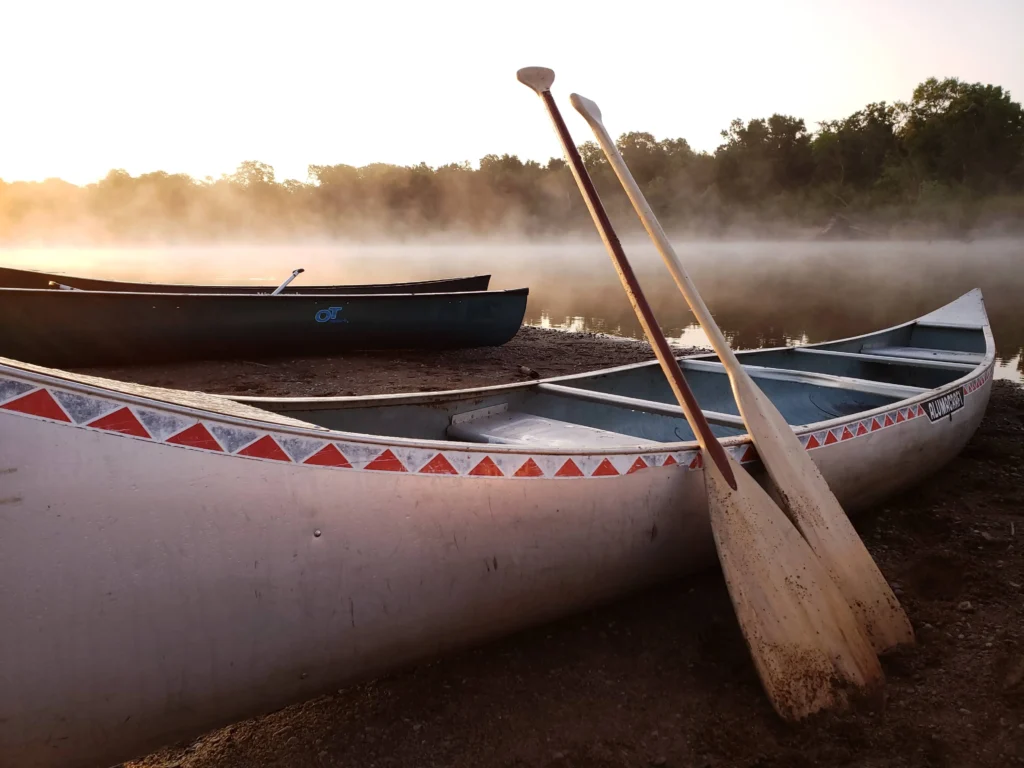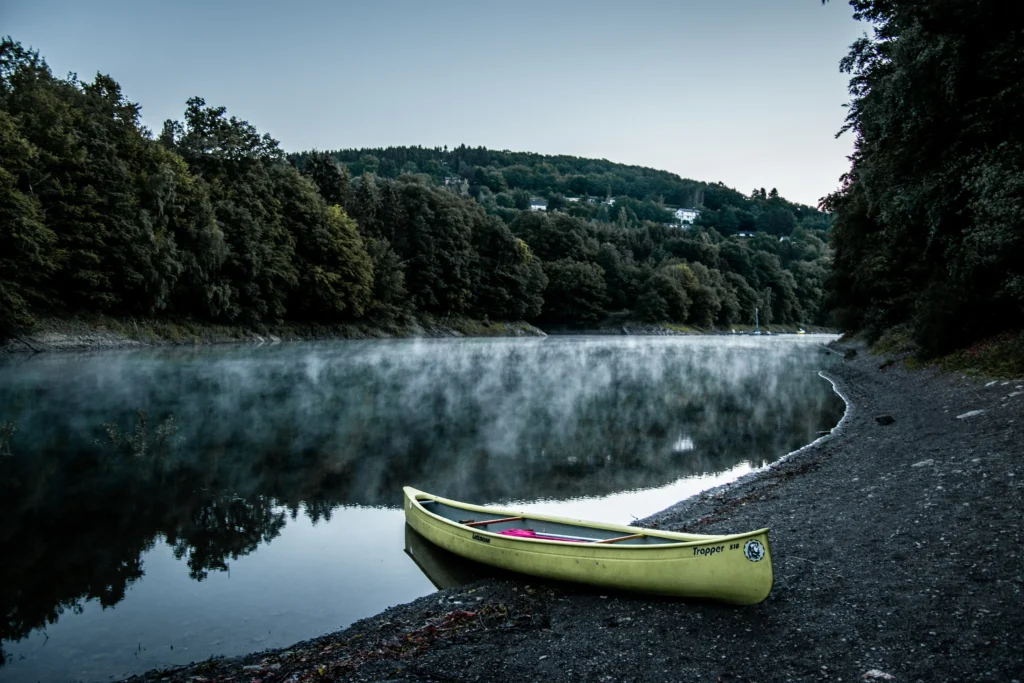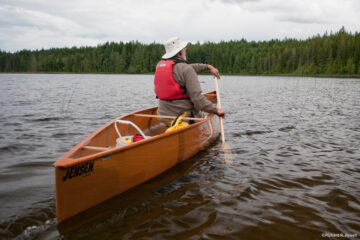What defines a good investment? For many, it’s not just about stocks and bonds. Consider the canoe. This simple watercraft, steeped in history, might be more than just a vessel for leisure. Here’s a quick look at why investing in a canoe could be a smart decision:
- Health Benefits: Canoeing offers physical and mental health benefits, aligning with the growing wellness trend.
- Eco-Friendly: As environmental awareness rises, eco-friendly activities like canoeing gain popularity.
- Affordable Recreation: Compared to other water sports, canoeing is relatively low-cost, appealing to a broad audience.
Exploring the potential of canoes as an investment, this introduction considers their health, environmental, and economic aspects.
Is Canoe a good investment?
Considering a Canoe Investment? Let’s Weigh the Pros and Cons!
Current Market Trends
The market for canoes is evolving. Let’s explore the current trends.
Impact of the Rise in Outdoor Activities on Canoe Sales
Outdoor activities have become more popular. This trend boosts canoe sales. People want to explore nature and stay active. Canoes are perfect for this.
They are easy to use and access different water bodies. This accessibility makes them popular among new and experienced outdoor lovers.
Trends in Eco-Tourism and How Canoes Fit into This Market
Eco-tourism is growing. People want to travel in environmentally friendly ways.
- Growing Popularity of Eco-Tourism: More travelers are choosing eco-friendly options. They want to minimize their environmental impact.
- Canoes as Eco-Friendly Transport: Canoes don’t use fuel. They cause no pollution. This makes them ideal for eco-tourism.
- Silent Exploration: Canoes allow quiet travel. This is less disruptive to wildlife. It’s perfect for bird watching and exploring nature reserves.
- Accessibility to Remote Areas: Canoes can reach places other boats can’t. This opens up new areas for eco-tourists.
- Low Impact on Ecosystems: Canoes don’t damage waterways like motorboats. They help preserve natural habitats.
- Cultural Immersion: Many eco-tours use canoes for cultural experiences. They connect travelers with traditional ways of exploring waterways.
- Sustainable Travel Trend: Canoes align with the trend of sustainable travel. They offer a responsible way to enjoy nature.

Financial Aspects of Canoe Investment
Investing in a canoe involves various financial factors. Let’s break them down.
Cost Comparison with Other Watercraft
Canoes are often more affordable than other watercraft like motorboats or sailboats. The initial cost of a canoe ranges from a few hundred to a few thousand dollars.
Maintenance costs for canoes are also lower. They don’t need fuel or expensive repairs often seen with motorized boats.
Resale Value and Depreciation of Canoes
Canoes hold their value well. They depreciate slower than many motorized boats. A well-maintained canoe can retain much of its value over the years. Factors like brand, material, and condition affect resale value.
Canoes made from durable materials like fiberglass or Kevlar tend to depreciate less.
Potential for Rental Income or Business Use
Canoes offer the potential for rental income. They are popular for recreational activities.
Tourists and outdoor enthusiasts often seek canoe rentals. Starting a rental business can be a profitable venture. The demand for canoe experiences in tourist areas adds to this potential.

Health and Environmental Benefits
Canoeing is not just a leisure activity. It offers significant health and environmental benefits. Let’s delve into these advantages.
Physical and Mental Health Benefits of Canoeing
Canoeing is a great workout. It strengthens the upper body, improves cardiovascular health, and enhances stamina. Paddling works the arms, back, and shoulders.
It also burns calories, aiding in weight management. Beyond physical health, canoeing boosts mental well-being. It reduces stress and improves mood. Being on the water and in nature promotes relaxation and mental clarity.
Canoeing as an Eco-Friendly Activity
Canoeing is kind to the environment. It does not require fuel, so it produces no emissions. This makes it a green way to explore waterways.
Canoes do not disturb wildlife or damage aquatic ecosystems. They allow for quiet, non-intrusive enjoyment of natural settings.
Contribution to Sustainable Tourism
Canoeing supports sustainable tourism. It encourages low-impact travel. Canoe trips often involve local guides and businesses.
This supports local economies. Canoeing also raises awareness about the importance of preserving natural areas. It promotes responsible travel practices.
Risks and Considerations
Before you decide to invest in a canoe, it’s essential to be aware of the risks and considerations involved. Let’s explore these factors in detail to make an informed choice.
Maintenance and Storage Requirements
When it comes to canoes, maintenance and storage are key factors to consider. Canoes, like any other asset, require upkeep. This includes regular cleaning, checking for wear and tear, and addressing any repairs promptly. Improper maintenance can lead to costly issues down the line.
Seasonal and Geographical Limitations
The usability of your canoe can be influenced by the seasons and your geographical location. Canoeing is ideal for warm, pleasant weather, but less so during colder months. In regions with harsh winters, you may have limited opportunities to use your canoe.
Geography also plays a role. If you live far from bodies of water, transportation and access become logistical challenges. Consider your local climate and geography when assessing the practicality of a canoe investment.
Market Volatility and Niche Appeal
The market for canoes can be niche, which may affect the the resale value and demand. Unlike more mainstream investments, canoes are specialized items. If you decide to sell your canoe in the future, you might encounter a smaller pool of potential buyers, potentially affecting the resale price.

FAQs
Is Canoeing a Popular Recreational Activity?
Canoeing is a popular outdoor activity. It appeals to those who enjoy nature, water sports, and adventure. Its popularity varies by region, especially in areas with accessible lakes, rivers, and calm waters.
What is the Resale Value of Canoes?
The resale value of canoes depends on their condition, brand, and age. Generally, well-maintained canoes from reputable brands retain good value. However, expect significant depreciation from the original purchase price.
Final Words
Investing in a canoe offers a unique blend of benefits, from promoting physical and mental well-being to aligning with eco-friendly trends in travel and tourism. It’s an affordable recreational option with the potential for rental income.
By weighing these aspects, you can make an informed decision on whether a canoe aligns with your lifestyle and financial goals.





[…] Considering building your canoe? Find out if it’s a worthwhile endeavor in our guide: Is Canoe a Good Investment? […]